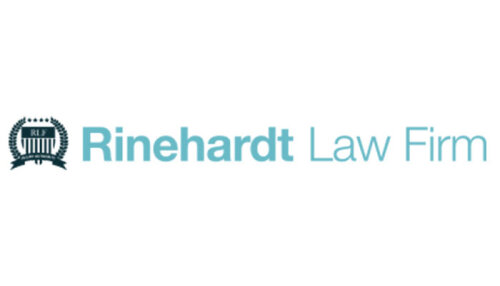Best Sexual Abuse Lawyers in Ontario
Share your needs with us, get contacted by law firms.
Free. Takes 2 min.
List of the best lawyers in Ontario, United States
1. About Sexual Abuse Law in Ontario, Canada
Ontario is a province in Canada, and this guide explains the laws that affect sexual abuse matters in that jurisdiction. It focuses on criminal and civil options available in Ontario, with references to federal Canadian law where relevant. If you are located elsewhere, or in the United States, this guide may not apply and you should seek jurisdiction-specific advice.
The core legal framework includes the Criminal Code of Canada for criminal offences such as sexual assault, consent requirements, and related protections. Ontario also uses the Ontario Human Rights Code to address harassment and discrimination, including sexual harassment in the workplace or service settings. In addition, provincial child protection and family services laws govern reporting obligations and protections for children who may be victims. Together, these laws shape how a survivor may pursue accountability, compensation, and safety.
Important practical realities include that criminal investigations operate separately from civil claims. A survivor may encounter police investigation, Crown counsel decisions, and potential criminal charges against an alleged abuser, while also pursuing civil remedies for damages in court. A qualified solicitor or attorney helps protect rights at every stage, from initial reporting to trial or settlement negotiations. For context, authorities emphasize survivor safety, informed consent, and access to supports during and after legal processes.
Statistics Canada notes that sexual violence is significantly underreported, and many survivors do not report to police for a variety of reasons.
Source: Statistics Canada
For authoritative information on the governing statutes, consult federal and provincial sources such as the Criminal Code of Canada and the Ontario Human Rights Code. See the Resources section for official links to legislation and government guidance.
2. Why You May Need a Lawyer
Here are concrete, real-world scenarios in Ontario where seeking legal counsel can make a meaningful difference.
- A university student reports a sexual assault by a fellow student and police begin an investigation. An attorney can help protect your rights during interviews, advise on bail requirements, and coordinate with Crown counsel on possible charges.
- An employee experiences ongoing sexual harassment at work and the employer fails to address it. A lawyer can evaluate rights under the Ontario Human Rights Code and pursue remedies such as accommodations, discipline against the employer, or damages for a hostile work environment.
- A survivor wishes to pursue a civil claim for damages against the abuser or against a institution (for example a school, church, or sports organization) based on negligence or vicarious liability. A solicitor can assess liability theories, gather evidence, and seek a settlement or trial outcome.
- A minor is suspected to have been sexually abused and child protection services become involved. A lawyer can protect parental and guardian rights, ensure appropriate safeguards, and coordinate with social workers and the court system.
- In addition to or instead of reporting to police, a survivor seeks financial assistance through provincial victim services or compensation programs. A lawyer can guide eligibility, documentation, and timing for applications.
- During or after a court process, the survivor needs help navigating complex rules about evidence, admissibility, and the proper handling of sensitive disclosures to avoid further harm. A qualified solicitor provides counsel on procedure and trial strategy.
3. Local Laws Overview
This section highlights two to three key laws that govern sexual abuse matters in Ontario, with notes on how they interact and what to expect in practice.
- Criminal Code of Canada, sexual offences - The Code defines sexual offences, including sexual assault, and sets out consent standards and related penalties. These provisions apply across Canada, including Ontario. For the current text and definitions, see the official statute: Criminal Code of Canada, Part VII - Sexual Offences.
- Ontario Human Rights Code - Prohibits discrimination and harassment, including sexual harassment in employment, housing, and services. It provides a framework for remedies and enforcement at the provincial level. See the statute and guidance at Ontario Human Rights Code.
- Mandatory reporting and child protection context (Child, Youth and Family Services Act, CFSA) - Governs reporting responsibilities for professionals and organizations when a child is at risk, and sets out care, protection, and court processes in Ontario. For statutory text and related guidance, see Ontario’s laws databases and the canlii entries for child protection provisions.
Key concepts to understand include that consent is a voluntary agreement, of legal age and capacity, to engage in sexual activity. Ontario and federal courts interpret consent based on Canadian common law and the Criminal Code. If consent is absent or obtained through coercion, the conduct may constitute a sexual offence under the Criminal Code.
Recent trends in Ontario emphasise survivor support, transparency in investigations, and coordinated responses among police, prosecutors, and victim services. For detailed, jurisdiction-specific information, consult the official sources listed in the Resources section.
4. Frequently Asked Questions
What is considered sexual assault under Canadian law?
Sexual assault is any unwanted physical contact of a sexual nature or any activity without consent that violates another person. It includes penetration, touching, or coercive acts. See the Criminal Code provisions for precise definitions.
How do I report sexual abuse in Ontario?
You can contact local police or, in some cases, provincial sex crime hotlines. Reporting initiates a police investigation and potential Crown counsel review. A lawyer can help protect your rights during the process.
When should I hire a sexual abuse lawyer in Ontario?
Consider contacting a solicitor early if you anticipate police interviews, require guidance on disclosure, or expect a civil claim for damages. Early legal advice helps preserve evidence and rights.
Where can I find information about consent and sexual offences?
Consult the Criminal Code of Canada and reputable government sources for consent definitions and case law. See the official Criminal Code link in the Resources section.
Why might I pursue a civil claim after an assault?
Civil claims can seek damages for pain, suffering, medical costs, and lost income. They are separate from criminal proceedings and may proceed even if criminal charges do not result in a conviction.
Can I pursue compensation from government programs?
Ontario offers victim services and potential compensation programs for survivors of violent crime. A lawyer can help determine eligibility and guide the application process.
Do I need to share my entire story at once in court?
No. Your attorney can help prepare you for testimony, protect sensitive information, and advise on what to disclose and when. You have the right to a respectful, supported process.
Is there a difference between a solicitor and an attorney in Ontario?
Ontario typically uses the term lawyer or barrister and solicitor for legal professionals. The term solicitor is used in some contexts, but both refer to trained legal counsel.
How long do sexual abuse cases take in Ontario?
Civil actions often range from several months to a few years, depending on complexity, court backlogs, and settlement timing. Criminal cases may also take many months to years, depending on the schedule and defense needs.
Do I need to provide evidence of the abuse to hire a lawyer?
While you should gather any related documents and records, a lawyer can assess your case based on your statements and available evidence. An initial consultation is a good starting point.
What should I prepare before meeting a lawyer?
Bring dates, locations, witnesses, any police or medical records, and a list of your goals. Prepare a brief timeline and any questions you want to ask about fees and process.
5. Additional Resources
These organizations and government bodies provide official information and services related to sexual abuse, victim support, and legal rights. They can help you understand options and access help.
- Justice Canada - Provides information on the Criminal Code, victims' rights, and reporting processes for sexual offences at the federal level. Official site: Criminal Code of Canada.
- Ontario Human Rights Commission - Governs anti-discrimination and harassment in Ontario, including sexual harassment in the workplace and service settings. Official site: OHRC.
- Ontario Laws and Statutes - Access to provincial statutes such as the Ontario Human Rights Code and related acts. Official resource: Ontario Laws.
- CanLII - Free access to Canadian laws and court decisions, including Ontario and federal statutes. Official site: CanLII.
6. Next Steps
- Clarify your goals and the scope of relief you seek (criminal charges, civil damages, or both). This helps you choose the right attorney.
- Collect key documents and timelines related to the abuse, including police reports, medical records, and communications with the institution involved.
- Schedule a consultation with a sexual abuse lawyer who practices in Ontario and has experience with both criminal and civil processes.
- Ask about fees, billing structure, and anticipated costs for investigations, expert witnesses, and court filings. Request a written retainer agreement.
- Develop a practical plan with your lawyer, including what to disclose during interviews and how to communicate with authorities.
- Consider safety planning and access to survivor supports during the process, including counseling and victim services programs.
- Review progress at regular intervals and adjust your legal strategy as needed, with your solicitor leading the way on decisions.
Lawzana helps you find the best lawyers and law firms in Ontario through a curated and pre-screened list of qualified legal professionals. Our platform offers rankings and detailed profiles of attorneys and law firms, allowing you to compare based on practice areas, including Sexual Abuse, experience, and client feedback.
Each profile includes a description of the firm's areas of practice, client reviews, team members and partners, year of establishment, spoken languages, office locations, contact information, social media presence, and any published articles or resources. Most firms on our platform speak English and are experienced in both local and international legal matters.
Get a quote from top-rated law firms in Ontario, United States — quickly, securely, and without unnecessary hassle.
Disclaimer:
The information provided on this page is for general informational purposes only and does not constitute legal advice. While we strive to ensure the accuracy and relevance of the content, legal information may change over time, and interpretations of the law can vary. You should always consult with a qualified legal professional for advice specific to your situation.
We disclaim all liability for actions taken or not taken based on the content of this page. If you believe any information is incorrect or outdated, please contact us, and we will review and update it where appropriate.










